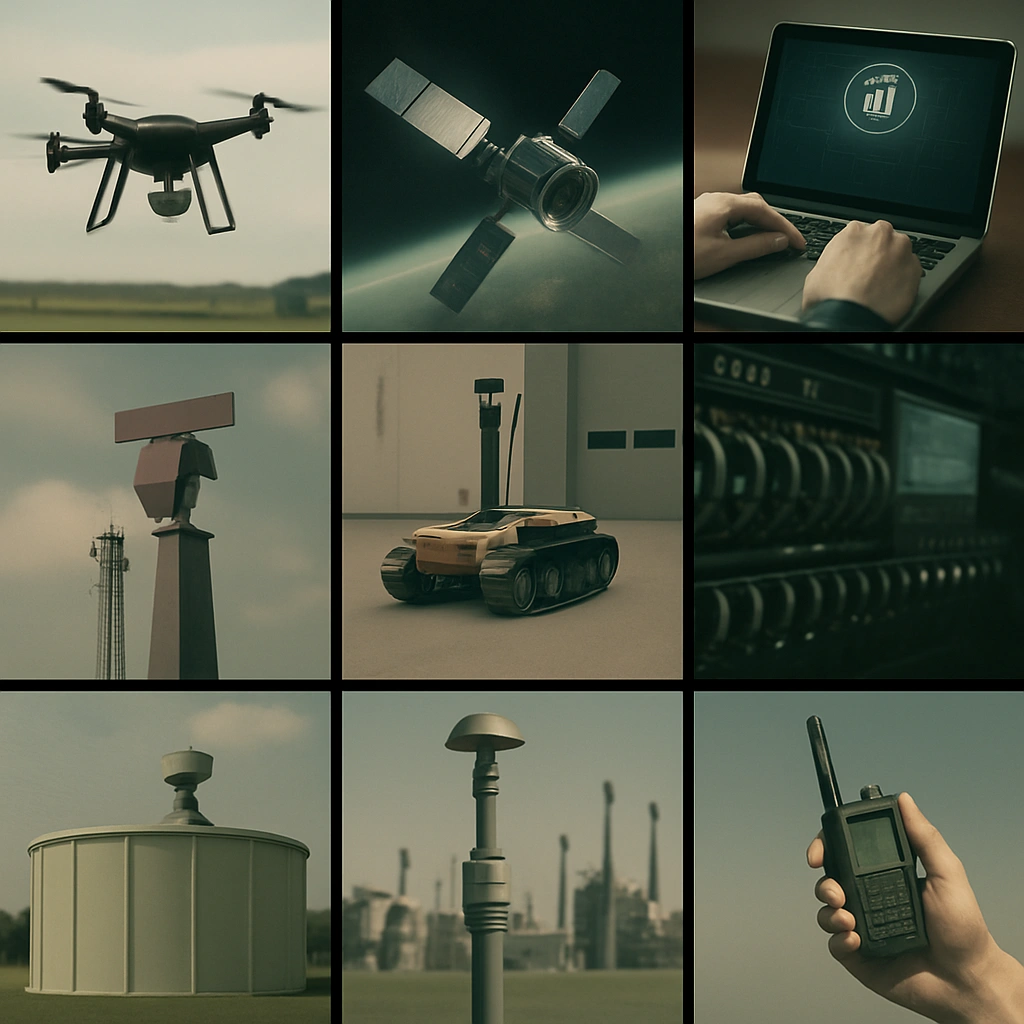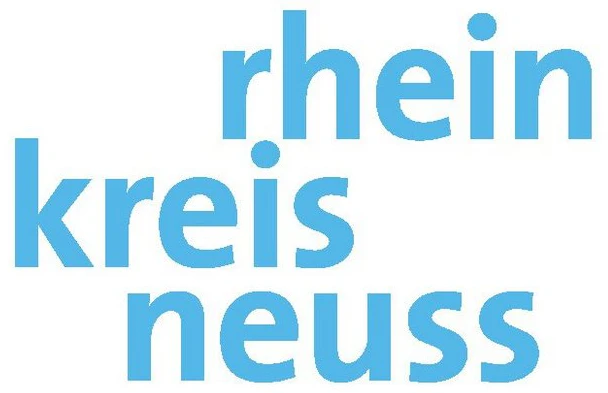Professional article
1stMOVER initiates new DefenseTech-Inkubator.NRW
Initial situation in Germany and NRW
The DefenseTech innovation ecosystem in Germany suffers from deep-rooted structural and cultural challenges that significantly inhibit the development and scaling of new technologies. Decades of geopolitical stability, a culture of pacifism and a strong sense of security have led to the need for defense innovation being largely underestimated. DefenseTech is often viewed skeptically, as evidenced by a closed industry, a lack of openness to external innovation and a prolonged reluctance of the venture capital market.
Universities, as potential sources of breakthrough innovations, have so far hardly established DefenseTech as a research focus, which has led to both insufficient awareness of the potential of research results and an extremely low number of start-ups and spin-offs. At the same time, there is a lack of government funding mechanisms, such as those that exist in other countries, to provide targeted support for DefenseTech start-ups and to build a bridge between research, industry and government users.
Current estimates put the number of active defense tech startups in Germany at around 100, a very low figure in relation to the German startup and university world as a whole, although the exact number is difficult to determine due to definitional issues and a lack of transparency in the sector. In its technology radar, the German Federal Ministry of Defense (BMVg) identified 178 companies that develop military applications, but only 43% of these companies are less than ten years old. These figures also include established SMEs, meaning that the pure start-up sector is estimated at around 100 companies. With only around 10 active defense tech start-ups and university spin-offs, North Rhine-Westphalia is far behind Bavaria (approx. 35) and Baden-Württemberg (approx. 30). Examples are
- CyberCompare (Cologne):
Platform for cyberwarfare simulations, used in the NATO CCDCOE. - Fraunhofer FKIE (Wachtberg):
Spin-off of the Fraunhofer Institute for AI-supported situational awareness analysis. - Code Intelligence GmbH (Bonn):
Automated vulnerability detection for embedded systems - SmartSensor Labs (Dortmund):
Developer of CBRN detection systems (chemical, biological, radiological, nuclear) - AeroNRW (Cologne):
Drone platforms for civil/military aerial reconnaissance - NeuroDefense (Aachen):
AI-supported evaluation of satellite images for terrain analysis
- SecureGrid (Essen):
Quantum key distribution networks for tap-proof communication - FibreCoat (Aachen):
manufactures coated high-performance fibers, e.g., metal-coated basalt fibers for electromagnetic shielding, including in military contexts. - SKIDER (Dortmund):
is developing a system for cross-manufacturer control and networking of drones, including secure communication and coordination of swarm drones. - Infiniteq (Mülheim):
is working on networked, autonomous drone systems (air, water, land) with comprehensive security architecture.
- ASDRO (Essen):
works with autonomous drones and geophysical sensors for precise surveying of surfaces and subsoil in areas that are difficult to access or critical in terms of safety. - Auxsys (Aachen):
develops active full-body exoskeletons for load relief during physically demanding operations with a focus on military applications. - staltec (Meerbusch):
offers advanced surface technologies, coatings, and repair services, e.g., for wear and corrosion protection of critical components in military systems.
A DefenseTech incubator for NRW can create a DefenseTech innovation ecosystem that networks universities, start-ups, industry and public bodies, promotes the productization and commercialization of research results and provides urgently needed capital and strategic advice. This project can not only strengthen the technological innovation power of NRW, but also make an important contribution to the strategic autonomy of Germany and Europe.
Dual-use and defense tech potential in NRW
With its diverse economic structure, excellent research landscape and central location in Europe, North Rhine-Westphalia (NRW) offers a solid basis for developing a powerful DefenseTech ecosystem. DefenseTech encompasses technologies with military and civilian applications (dual use) - including AI, autonomous systems, sensor technology, quantum and cyber security technologies. Against the backdrop of security policy changes ("turnaround") and growing defense budgets, new opportunities are opening up for start-ups, research and companies in NRW.

NRW already has a large number of players working on security-relevant technologies - some with an explicit defense focus, others with dual-use potential:
- Artificial intelligence (AI):
Research institutions such as the Lamarr Institute (Bonn/Dortmund), KI.NRW and Fraunhofer IAIS are working on technologies for the automated evaluation of data, situational awareness and threat analysis. Start-ups such as TrueOcean and CollectAI are developing AI solutions that can be adapted for reconnaissance, data fusion and social media monitoring. - Drones & UAVs:
The company ASDRO (Essen) has developed a drone for mine detection that has been tested with the German armed forces. Third Element Aviation (Bielefeld) offers robust multicopter platforms for autonomous logistics - with potential for military supply and reconnaissance. - Robotics & Autonomous Systems:
The University of Bonn (AIS Group, Team NimbRo) is a leader in telepresence robotics. Research projects at RWTH Aachen University and universities of applied sciences are developing autonomous vehicles that are also suitable for military logistics and sensor carriers. - Sensors & ISR:
The Fraunhofer Institutes FKIE, FHR and INT are researching radar systems, multisensor data fusion and electromagnetic shielding - essential for situational awareness, drone detection and critical infrastructure protection. - Industrial IoT (IIoT):
PHYSEC GmbH (Bochum) develops tamper protection for sensors and networks. Numerous industrial companies in NRW (e.g. Turck, ifm) produce sensors and automation technology that are suitable for military applications. - VR/AR & simulation:
Universities in Bonn, Essen and other institutions are researching immersive technologies for training and decision support. Mixed reality systems such as the Bundeswehr project ACOP could also be further developed in NRW. - Quantum technologies:
The start-ups eleQtron (Siegen) and Black Semiconductor (Aachen) are working on quantum technologies with potential for secure communication, sensor technology and high-performance computers. The state government is supporting these developments via "Quantum NRW". - Cyber security:
A highly competent cyber cluster is located in Bochum (HGI) and Bonn (BSI, Bundeswehr). Start-ups such as PHYSEC, XignSys and secunet offer solutions for secure communication, data rooms and critical infrastructures.
Many companies and universities in NRW are working on high technologies that have so far been used purely for civilian purposes but have a high defense potential:
- Industry 4.0 and logistics - automation, autonomous intralogistics, maintenance IT for military vehicles or warehouse logistics.
- MedTech and healthcare - portable diagnostics, emergency care, AI-based triage systems.
- Geodata and space travel - use of satellite images, sensor fusion for military situational awareness.
- Materials and energy technology - new materials, mobile energy systems, protection technology.
These players need targeted programs to identify dual-use and defense applications and develop them close to the market.
NRW in a national and European comparison
- National:
Bavaria has built up a strong DefenseTech center in Munich (e.g. Helsing, Quantum Systems) and has targeted funding mechanisms. Berlin scores highly with the Bundeswehr's Cyber Innovation Hub and a high density of start-ups. In comparison, NRW has a broader, less specialized landscape, but great industrial depth and research density. - Europe:
France (Preligens, Definvest), the Netherlands (NATO-DIANA test centers), Sweden (Saab Ventures) and Estonia (Milrem Robotics, NATO-CCDCOE) show how targeted strategy, public funding and an open innovation culture can make a DefenceTech ecosystem successful.
SWOT analysis for NRW
| Strengths | Excellent research landscape (AI, quantum, cyber), strong industry (hidden champions), leading cyber cluster (Bochum/Bonn), central location close to NATO. |
|---|---|
| Weaknesses | Low visibility as a DefenseTech location, fragmented structure, timid start-up culture in the defense sector, civilian clauses at universities. |
| Opportunities | Defense investments, EU funding programs (EDF, DIANA), growing demand for dual-use technologies, increasing security awareness. |
| Risks | Drain of talent, political mood of change, procurement bureaucracy, lack of early orientation of founders towards defense. |
Recommendations for action for NRW
- Expand support and incentive systems
- Establishment of a national funding program for dual-use projects.
- Grants for prototyping and demonstrators (TRL 4-6).
- Access to Bundeswehr test environments and strategic suppliers.
- Making DefenceTech visible
- Annual "DefenseTech.NRW" congress as a flagship event.
- Meetups and topic formats in existing clusters (e.g. Cybersecurity Cluster Bonn).
- Representation at security trade fairs (ILA, Eurosatory, MSK).
- Targeted integration of universities
- Fellowships for security-related research.
- Dialog formats on civil clauses and acceptance of armaments.
- Entrepreneurship courses with a focus on security technologies.
- Create competence centers & test fields
- Dual-use centers at existing research institutions (e.g. Fraunhofer INT).
- Public real-world laboratories (e.g. autonomous logistics, 5G campus networks).
- "DefenseTech Challenge NRW" for rapid project initiation
The new DefenseTech-Inkubator.NRW - initiated by 1stMOVER, supported by strong partners

The DefenseTech-Inkubator.NRW ( www.defensetechinkubator.nrw) takes up many of the aforementioned recommendations for action and will be established as a central platform for raising awareness, activating and supporting start-ups, university teams and spin-offs in the field of DefenseTech. The aim is to build a sustainable innovation ecosystem for defence technologies in North Rhine-Westphalia, characterized by close cooperation between universities, start-ups, companies and the public sector.
A particular focus is on attracting start-ups and academic teams that have primarily developed civilian technologies to the defense tech sector and harnessing their innovation potential. Many technological breakthroughs in areas such as artificial intelligence, robotics, sensor technology and cybersecurity have both civilian and military applications. The incubator helps to tap into this potential for the defense and security industry.
The incubator uses existing funding programs, university structures and company networks to accelerate the development and market launch of new DefenseTech solutions and establish NRW as a leading location for defense and security technologies:
- Improvement of technology transfer from NRW universities & start-ups in DefenseTech applications.
- Increase in start-up activity in the DefenseTech sector in NRW with 10-15 new DefenseTech start-ups in 3 years.
- Essential contribution to the development of a DefenseTech innovation ecosystem in NRW and to the visibility of NRW as a security-relevant high-tech location.
- Strengthening NRW's competitiveness in the German and European defense market.
With a dedicated DefenseTech incubator, NRW can become a central player for defense and security technology innovations in Germany and thus responsibly help shape the development of this important and sensitive industry - in an open dialogue and with a clear ethical compass.
The DefenseTech-Inkubator.NRW is supported by:




